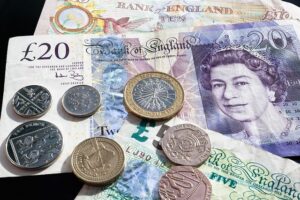Navigating Norway’s Investment Landscape: Tips for New Investors
Norway, known for its stunning fjords, vibrant cities, and high standard of living, also boasts a robust and appealing investment landscape. As a new investor, entering this dynamic market can seem daunting, but with the right guidance and insights, you can navigate it successfully. This article aims to provide you with essential tips and strategies to help you make informed investment decisions in Norway.
Understanding the Norwegian Economy
The starting point for any investment strategy is to understand the underlying economy. Norway has a mixed economy characterized by a combination of free market activity alongside significant government ownership in key sectors such as energy and telecommunications. The country has a wealth of natural resources, including oil, gas, and minerals, which serve as the backbone of its economy and contribute significantly to its GDP.
In recent years, Norway has also emphasized sustainability and green technology, aiming to reduce its carbon footprint and transition towards a more diversified economy. The government has been investing heavily in renewable energy sources such as wind and solar power, making it an attractive market for investors interested in sustainable ventures.
Identifying Investment Opportunities
With a solid grasp of the economic landscape, new investors should look into different sectors that present opportunities. Norway’s economy is diversified, with key investment areas including:
- Energy Sector: As one of the leading oil producers in Europe, Norway is an attractive destination for investments in oil and gas. However, the shift towards renewable energy is opening new doors for investments in wind and hydroelectric power.
- Technology and Innovation: Norway has a growing tech scene, especially in Oslo, where startups focusing on software development, fintech, and health tech are flourishing. Investing in these startups can yield substantial returns as the sector expands.
- Tourism: The breathtaking beauty of Norway makes it a prime tourist destination, creating opportunities in hospitality and travel-related investments.
- Real Estate: With increasing population trends in cities like Oslo and Bergen, the real estate market is steadily growing, offering potential for lucrative investments.
Legal and Regulatory Framework
Before diving into investments, it is imperative to understand the legal and regulatory landscape of Norway. The country is known for its transparent and stable regulatory environment, which is favorable to foreign investors. The Norwegian government has established various incentives and tax benefits to attract foreign investment across different sectors.
New investors should familiarize themselves with the following aspects:
- Business Structure: Understanding the different types of business structures available, such as Aksjeselskap (AS), which is the equivalent of a limited liability company, is essential for new investors.
- Permits and Licenses: Certain sectors require specific regulatory permits and licenses. It is crucial to research and understand these requirements before starting an investment.
- Tax Regulations: Norway’s tax framework is relatively investor-friendly, with a corporate tax rate of 22%. Familiarizing yourself with tax obligations, VAT, and potential tax relief for investments in certain sectors will be beneficial.
Market Research and Analysis
A critical step in the investment process is conducting thorough market research and analysis. Understanding market trends, consumer behavior, and competitor landscapes can help you make data-driven decisions. Tools and methods for conducting research include:
- Industry Reports: Utilize industry reports relevant to the sector of interest, as they provide comprehensive insights into market dynamics, future trends, and competitor strategies.
- Networking: Engage with local investors, industry professionals, and attend local investment seminars and workshops to gain insights and firsthand knowledge.
- Online Platforms: Analysis tools and databases can provide market data, helping you stay up-to-date with market shifts and emerging opportunities.
Building a Local Network
In Norway, business is often conducted on a personal level; therefore, building a robust local network is crucial. Networking opens doors to partnerships, collaborations, and insider information that could enhance your investment strategy. Consider the following ways to expand your network:
- Join Industry Associations: Becoming a member of industry-specific associations can provide networking opportunities and resources.
- Attend Conferences and Trade Shows: These events allow you to meet industry leaders and potential partners while also gaining insights into market trends.
- Engage in Professional Social Media: Platforms like LinkedIn are useful for connecting with professionals in your field of interest. Participate in discussions and share insights to establish your presence.
Choosing the Right Investment Vehicle
There are several ways to invest in Norway, depending on your risk tolerance and investment strategy. Understanding the various investment vehicles available is essential for making informed decisions. Some common options include:
- Stocks and Equities: Investing in Norwegian companies, especially those listed on the Oslo Stock Exchange, can provide high returns, especially in growth sectors.
- Real Estate: Direct ownership, real estate investment trusts (REITs), or property funds allow investors to enter the Norwegian real estate market.
- Mutual Funds and ETFs: For those looking to diversify their investment portfolio without directly picking stocks, mutual funds and exchange-traded funds focused on Norwegian markets are viable options.
- Startups and Venture Capital: Norway has an innovative startup ecosystem. Investing in emerging companies can be highly rewarding but carries higher risk.
Investment Risks and Considerations
Every investment endeavor carries risk, and being aware of potential challenges is vital for success. Some common risks associated with investing in Norway include:
- Market Volatility: Economic shifts and global market changes can impact stock prices and investment values.
- Regulatory Risks: Changes in government policies or regulations can affect sectors, particularly in energy and finance.
- Currency Fluctuations: For foreign investors, fluctuations in the Norwegian krone can impact investment returns.
- Competition: Entering a competitive market may require a solid strategy and unique value proposition to stand out.
Seeking Professional Guidance
As a new investor, seeking professional guidance can significantly enhance your understanding of the market and investment strategies. Consider hiring financial advisors, investment consultants, or legal professionals who specialize in Norwegian investments. These experts can provide valuable insights and help you avoid costly mistakes. Additionally, leveraging local investment firms can provide access to regional knowledge and networks that are vital for success.
Conclusion
Navigating Norway’s investment landscape can be a rewarding endeavor for new investors. By understanding the economic framework, identifying opportunities, and building a local network, you can make more informed decisions. Furthermore, considering the legal and regulatory environment, conducting diligent research, and being aware of potential risks are essential steps in your investment journey.
Remember, patience and thorough preparation pave the way for fruitful investments. With the right tools and guidance, you can thrive in Norway’s vibrant investment market, taking advantage of the country’s wealth of opportunities. Invest wisely, and the beautiful country of Norway may reward you with both financial returns and enriching experiences.



